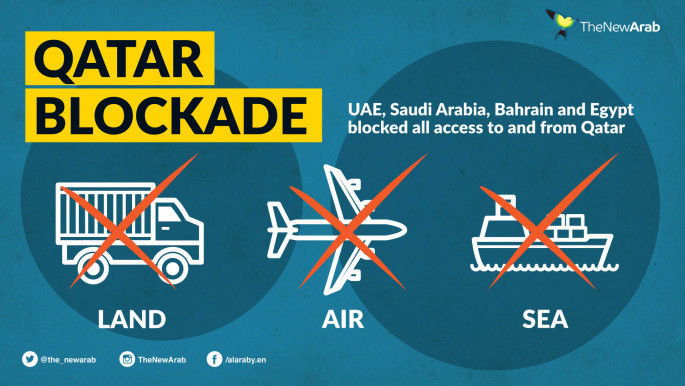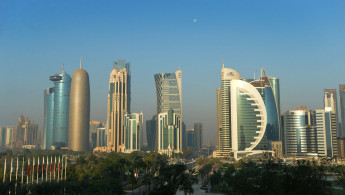Saudi coalition blacklists Islamist groups, individuals in Qatar boycott escalation
A Saudi-led coalition blockading Qatar added 11 more individuals and two other entities including a prominent group of Islamic scholars to their "terrorist" blacklists of the Gulf state.
Saudi Arabia, the United Arab Emirates, Bahrain and Egypt began a blockade on Qatar in June, accusing it of supporting "extremism" and being too close to Iran - charges Doha has denied.
A statement issued by Saudi Arabia, Egypt, the United Arab Emirates (UAE) and Bahrain said they had blacklisted the Qatar-based International Union of Muslim Scholars (IUMS) and the International Islamic Council (IIC).
The IUMS was formed in 2004 mostly by clerics belonging to the Muslim Brotherhood and is chaired by the influential Sheikh Youssef al-Qaradawi.
Its membership includes the Saudi cleric Salman al-Awdah, who was arrested by Saudi authorities in September, Tunisian politician Rached Ghannouchi, head of the Ennahda party, and Moroccan scholar Ahmed Raissouni.
"The two entities listed are two terrorist organisations that promote terrorism by using Islamic rhetoric as a cover to facilitate terrorist activities," the statement said.
 |
|
The Saudi-led coalition also added 11 individuals to their lists, including the acting Brotherhood leader Mahmoud Ezzat Ibrahim.
The move further deepens a rift between Qatar and the four countries, which cut ties with the Gulf state in the summer.
Saudi Arabia and its allies in June issued Qatar with a list of demands, including shutting down Al Jazeera as well as the London-based The New Arab, curbing relations with Iran and closing a Turkish military base in the emirate.
After severing ties with Doha, Riyadh and its allies closed land and maritime borders, suspended air links and expelled Qatari citizens.
But despite the spat, Qatar has announced several multi-billion dollar military deals with the US, Italy and Britain.
Mediation efforts of the Qatar crisis led by Kuwait and shuttle diplomacy by Western officials, including US Secretary of State Rex Tillerson, have failed to end what has become the worst rift between Gulf Arab states in years.
In October, the top US diplomat blamed the Saudi-led quartet for the lack of progress in attempts to mediate the crisis.





 Follow the Middle East's top stories in English at The New Arab on Google News
Follow the Middle East's top stories in English at The New Arab on Google News
![Israeli forces ordered bombed Gaza's Jabalia, ordering residents to leave [Getty]](/sites/default/files/styles/image_330x185/public/2176418030.jpeg?h=a5f2f23a&itok=_YGZaP1z)

